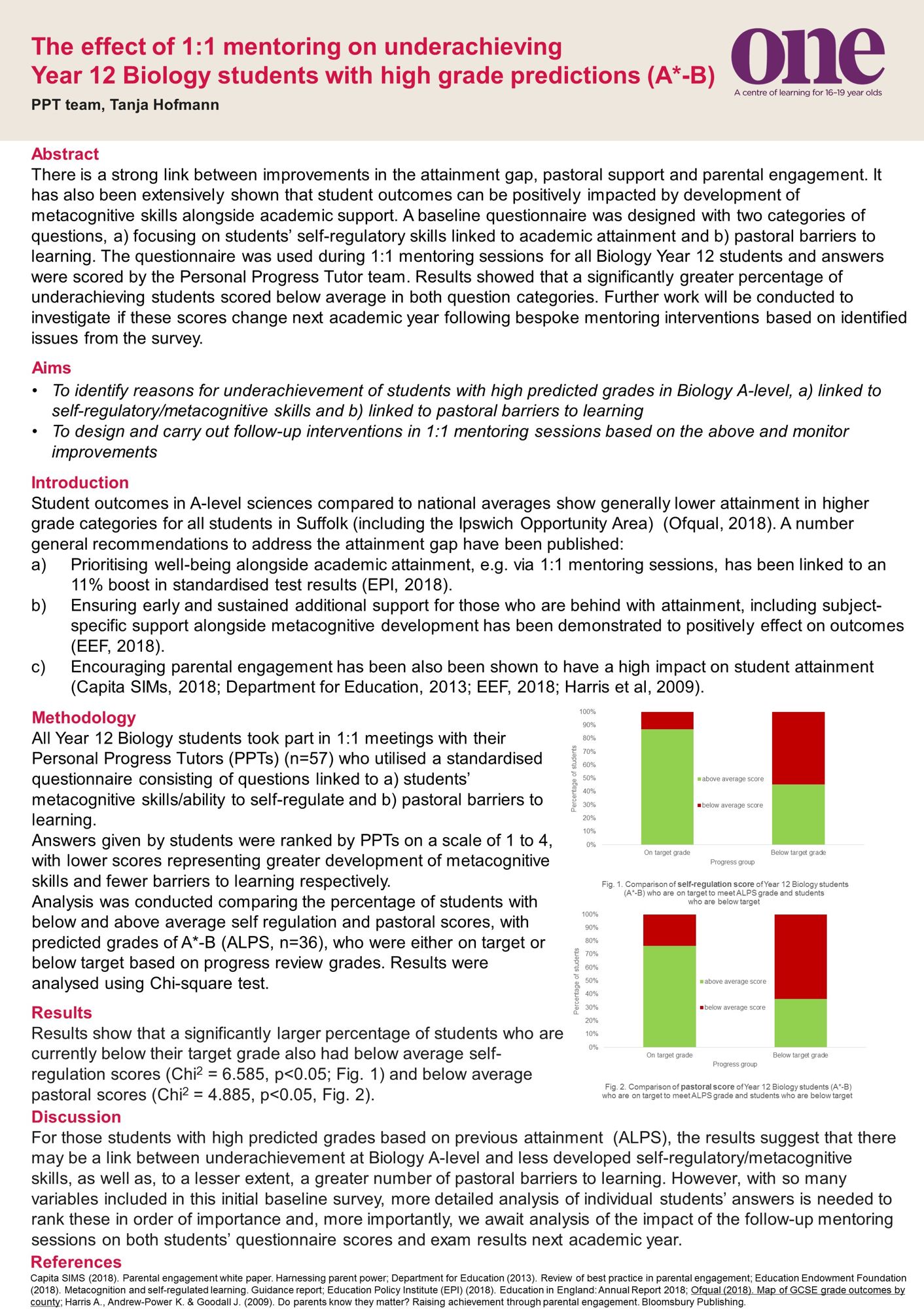
News
A clear attainment gap in both Maths and English GCSE has been evidenced by numerous sources for disadvantaged 16-18 year old students (e.g. DfE, 2015; Education Endowment Foundation, 2016 & 2017; Sobel, 2018; EPI, 2018) and this is particularly significant in the South-East, i.e. 33.9% difference comparing FSM with non-FSM for GCSE Maths and English, which is the highest when compared to all other regions in the UK (Education Endowment Foundation, 2017).
Many disadvantaged students do not progress into further education; in fact around 21.2% (27% in the south-east) of disadvantaged pupils (i.e. one in five) would need to switch their post-16 destination to match the destinations of non-disadvantaged students, including into sixth form (EPI, 2018). The figures above would suggest that fewer students in Suffolk meet some of the subject specific entry requirements to study Level 3 courses, particularly those which rely on high Maths GCSE grades for progression, such as STEM A-levels.
However, does the attainment gap narrow for those disadvantaged students who actually progress to Level 3 education and what are the strategies that will ensure high attainment for capable students?
There are a number general recommendations to address the attainment gap (EPI, 2018):
Addressing the attainment gap is a priority of the Ipswich Opportunity Area and we have sought funding from the Evidence-based practice fund to support our project.
Our research, which will commence in January 2019, will link to the recommendations listed above, examining the impact of mentoring, via strategies implemented by Personal Progress Tutors (PPTs) focused on attainment and development of metacognitive skills alongside well-being, emotional health and parental engagement, for post 16 students with high target grades, specifically analysing the effect on disadvantaged students and with a focus on STEM subjects.
Tanja Hofmann (Research Lead; tanja.hofmann@suffolkone.ac.uk)
Capita SIMS (2018). Parental engagement white paper. Harnessing parent power.
Department for Education (2013). Review of best practice in parental engagement. ;
Department for Education (2015). Supporting the attainment of disadvantaged pupils. Briefing for school leaders.
Education Endowment Foundation (2016). Improving Level 2 English and Maths outcomes for 16 to 18 year olds. Literature review.
Education Endowment Foundation (2017). The attainment gap.
Education Policy Institute (EPI) (2018). Education in England: Annual Report 2018.
Harris A., Andrew-Power K. & Goodall J. (2009). Do parents know they matter? Raising achievement through parental engagement. Bloomsbury Publishing.
Sobel D. (2018). Narrowing the attainment gap: A handbook for schools, NY: Bloomsbury Education.
Research poster
